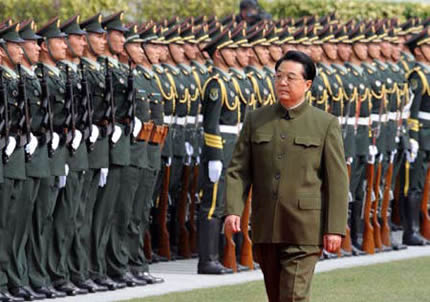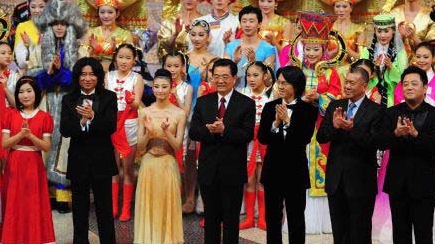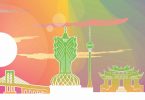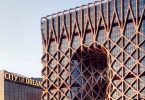This article first appeared in the Chinese New Year 2010 special issue of World Gaming magazine.
Macau was handed back to the Chinese motherland over 10 years ago. One country, two systems has been an incredible success and the future for Macau and the region looks brighter than ever.
It is no secret that people are scared of change. This is understandable considering that change often brings uncertainty about what the future holds and leaves people wondering whether they will better or worse off. Many people think of change as inherently negative but more often than not change turns out to be for the better. There is no bigger change for a nation than a change in political structure, but 10 years on there could be little argument that Macau has flourished under “one country, two systems” and the future looks bright for the territory.
Macau holds a special place in colonial history as it was both the first and last European colony in China. Portuguese traders first settled in Macau in the 16th century and administered the region until the colony was returned to China on 20 December 1999. Hundreds of years of Portuguese culture were always going to have some influence on the flavour of Macau and many feared that it might be lost overnight. As it turns out this hasn’t been the case as Chinese and Macau authorities have worked together to preserve Macanese culture and embrace Chinese culture at the same time. The result is a unique part of the planet that can claim to have the best of both worlds.
Macau has maintained many of the institutions that predated the handover. It has its own legal system, police force, monetary system, customs policy, immigration policy and delegates to international organisations and events. Outside the administrative setup you can see that Macau has managed to maintain some European traditions such as a strong café culture in the city including Portuguese coffee and pastéis de nata (the very popular egg custard tarts). Where else in the world can you enjoy fantastic Cantonese and other traditional Chinese fair and then enjoy the best of European cuisine on top. Authentic Portuguese grills and some of the best red wine anywhere in the world continue to have a strong influence on Macanese living.
Festivals and celebrations of local culture in Macau reflect its strong Chinese heritage. The Portuguese brought Catholicism with them but it always coexisted with the local Buddhist and Taoist traditions. Christmas is celebrated in Macau as is Chinese New Year. Dragon boat racing to horse racing; you name it Macau has it on offer and there never appears to be any problems with the blending of these diverse cultures.
The region is on a roll and at the moment things look very bright. The gaming industry is clearly the strongest financial force in the Macau economy. The sheer volume of visitors coming to Macau (over 21 million in 2009) amounts to serious revenue. The government has been smart; they have embraced change and they have used the resources on offer to build themselves into an economic powerhouse.
The mainland government is proud to acknowledge Macau as part of China and this was demonstrated recently when Chinese President Hu Jintao, arguably the most important man in the world, attended the 10th anniversary of Macau’s return to the motherland. The President swore in Fernando Chui Sai On as the Macau SAR Chief Executive at a ceremony where both flags proudly flew. Both men understand the important role Macau plays in this part of the world and with its future now assured any doubt that the handover would cause any problems have been laid to rest.

Chinese President Hu Jintao arrived in Macau, as the city celebrated its 10th anniversary of reunification with the motherland
Testament to the success of the region is the upcoming Hong Kong-Zhuhai-Macau bridge project that the joint governments are undertaking. The world’s longest sea bridge is going to be built, linking mainland China, Macau and Hong Kong; one of the greatest engineering feats ever undertaken. The bridge will be 50 kilometres long, most of which will span the sea. The structure includes a 5.5 kilometre underwater tunnel with artificial islands to join it to bridges on either side. Traffic will span a massive six lanes signifying its intention to work as a fully functioning bridge, not just a monument to cutting edge engineering. Best of all it is estimated that the bridge will cut drive time from Hong Kong from four hours to just 35 minutes. Completion is expected in 2015 or 2016.
The cost for the bridge is estimated at a staggering 73 billion yuan. This will make it the fifth most expensive engineering project undertaken in the history of the world. However, it is expected to generate HK$40 billion in economic benefits within the first two decades of use – and the bridge is being built to last 120 years.
Macau in the last 10 years (and for that matter Hong Kong as well) has shown that the “one country, two systems” form of government can be an overwhelming success. Everyone has worked hard to make Macau a vital part of China but also to ensure that it continues to embrace its long and colourful history. Chief Executive Fernando Chui Sai On is committed to the continual improvement of Macau. With a huge gaming-led tourism base the future is particularly bright for the people of Macau, and also for those lucky enough to travel here and enjoy everything this vibrant city has on offer.







